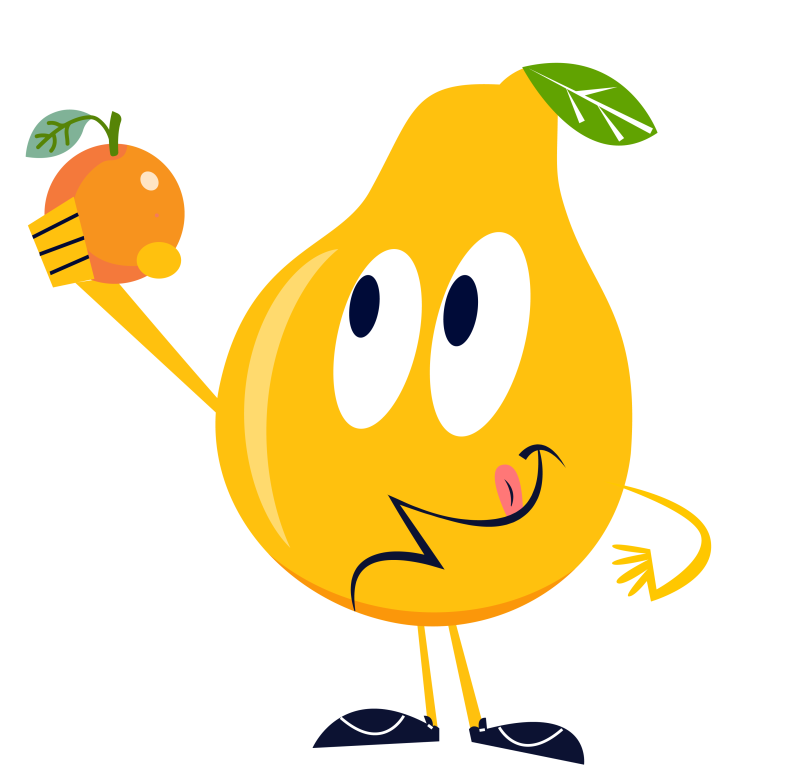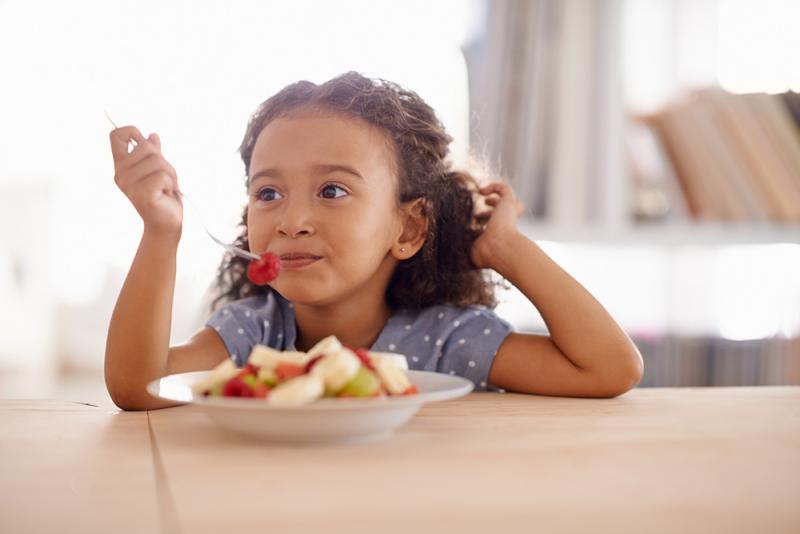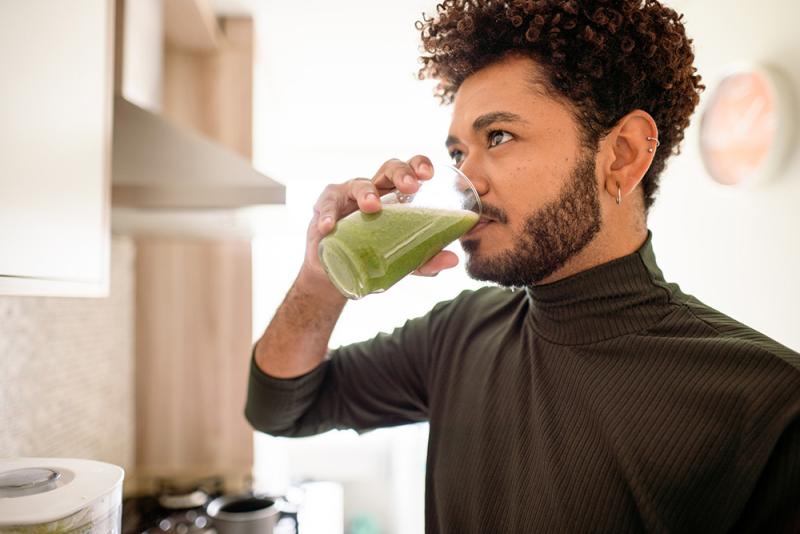
Fruits are so versatile! They can be added to cereal and yogurt, chopped up into a salad or baked into a tasty dessert. You can even grab some canned, frozen or fresh fruit as a quick snack.

Types of Fruits
| Berries | Kiwifruit | Currants | Melons |
| Apples | Bananas | Oranges | Pears |
| Dragon fruit | Jackfruit | Cherries | Grapefruit |
| Grapes | Dates | Figs | Guava |
| Mangoes | Prunes | Plums | Raisins |
| Peaches | Lychee | Pomegranate | Apricots |

Portion Size
In most cases, 1 cup of fruit or 100% fruit juice, or ½ cup of dried fruit can be counted as 1 cup from the Fruit Group.

How many servings do you need?
Most adults need to consume between 1 ½ -2 ½ cups of fruits each day.
Everyone needs a different amount of fruits. This is based on age, sex, height, weight, and amount of physical activity. Fruit needs can also depend on whether a person is pregnant or breastfeeding. Find the right amount for you by getting your MyPlate Plan.
- Fruits are full of nutrients such as potassium, fiber, and vitamins B & C.
- A diet rich in fruits can help reduce your risk of heart disease and may help manage your blood pressure levels.
- Fruits rich in vitamin C (such as strawberries and citrus fruits) help repair your body’s cells and keep your gums and teeth healthy. Vitamin C also helps your body absorb iron!
- Most fruits are low in fat, sodium, and calories.




